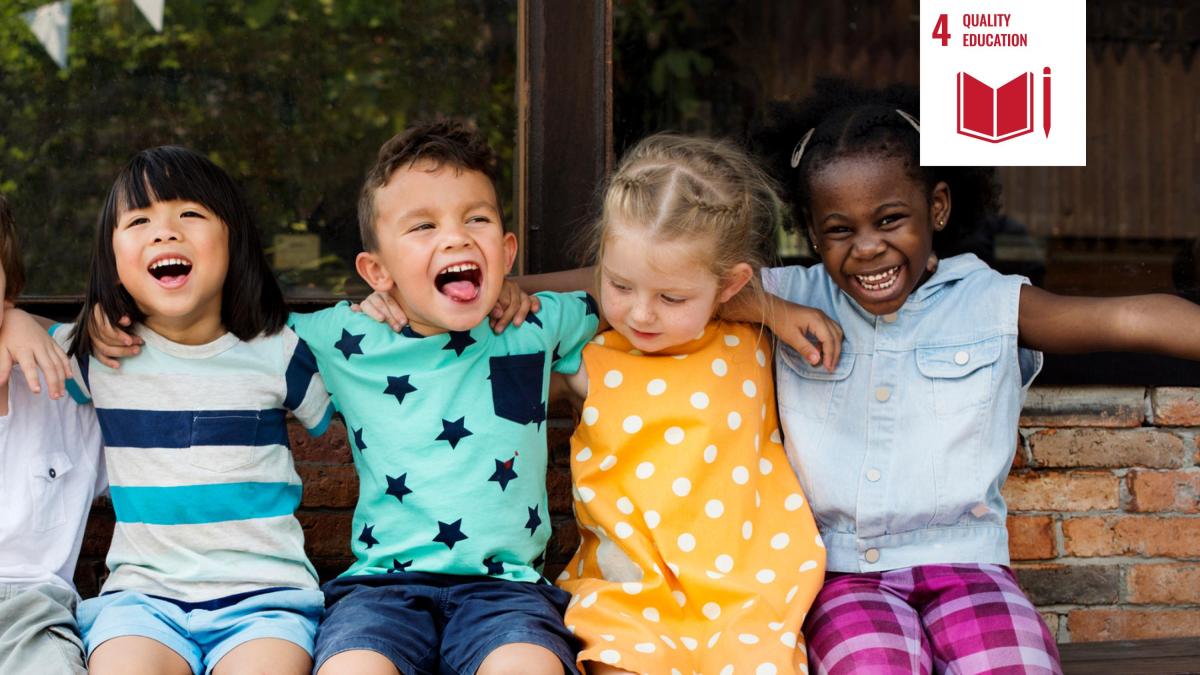
Kakuma refugee camp in Northwestern Kenya, is one of the biggest refugee camps in the world. Kakuma is located in the desert where temperatures regularly exceed 40 degrees and conditions of extreme poverty prevail. Despite this adversity, it is the location of a unique and groundbreaking refugee-led development project Vijana Twaweza (Youth We Can!). Supported by the School of Law and Government’s Dr. Paul O’Keeffe, Vijana Twaweza, a sustainable agriculture organisation, brings young people living in the camp together to raise fish and fowl and grow vegetables in an effort to fight food scarcity and provide food diversity for their community.
The icon on this article represents contribution towards the UN Sustainable Development Goals. The Sustainable Development Goals are 17 objectives designed by the United Nations to serve as a shared blueprint for peace and prosperity for people and the planet.
Origins of the project
With seed funding raised by friends overseas, Vijana Twaweza organised itself as a community based organisation open to young people from many different backgrounds among the 24 different nationalities living in Kakuma. Faced with a narrow diet and a lack of fresh food such as fish, camp resident and Vijana Twaweza founder Dieu Merci Luundo decided to make a pond in the camp and rear tilapia and catfish which he had captured as spratlings from a nearby river. . Soon he joined together with other members of Vijana Twaweza to upgrade to a bigger pond in a communal space in the UNHCR administered camp.
Through hard work and sheer determination to overcome the many issues that they faced in setting up their organisation and making it work in one of the most inhospitable environments in the world (Kakuma is located in desert where temperatures regularly exceed 40 degrees and conditions of extreme poverty prevail), Vijana Twaweza now farms 5 large custom made fish ponds, raises rabbits and ducks and grows a variety of vegetables to help in their efforts to combat malnutrition in the camp. The project has even picked up various accolades and awards along the way, including the World Food Programme’s Young Innovators in East Africa award and the Permaculture magazine award in 2021.
Mobilisation
Dr O’Keeffe has been working with the people in the camp for the last 7 years, helping them to mobilise themselves to find lasting solutions for the many development needs that they face. Initially Dr O’Keeffe began his work in Kakuma with the University of Geneva in 2017, where he helped set up and manage its higher education in emergencies programme in the camp and various side projects which grew out of that work. Dieu Merci Luundo and those who started the Vijana Twaweza project were graduates from the courses that the University offered in the camp. They wanted to bring their knowledge in Global Health, Medicine and Human Rights together to do something for the future of the community.

Next phase
Having joined DCU in 2023, Dr O’Keeffe has continued his work with Vijana Twaweza connecting his students on the BSc in Global Challenges programme with members of the project to learn about their lives in Kakuma and their work in promoting sustainable agriculture to meet their own needs. In addition, Dr O’Keeffe and his team in Kakuma will start a new chicken farming training programme in 2024. This project will see Vijana Twaweza train 15 female heads of households in the camp to become independent chicken farmers. Over the course of the coming spring and summer, Vijana Twaweza will set up a training site in the camp complete with a chicken incubator, materials to create chicken coups and feeding for 200 chickens to be raised to maturity by participants in the training project.
Chickens are well suited to the conditions of the camp, are easy to raise, grow fast and produce meat and eggs that are a valuable source of protein in a place where it is estimated that 60% of children suffer from malnutrition. Chickens also have the bonus of eating scorpions – a deadly scourge in Kakuma. The hope is that once the participants in the project have their own profitable farms up and running, the training project can be scaled up and others can be inspired to find their own sustainable agricultural solutions.
Launching in January, the chicken farming project will add another string to Vijana Twaweza’s bow as it continues its efforts to provide sustainable and nutritious food to the people of Kakuma. With the project’s launch just around the corner, Dr. O’Keeffe, and his team are eager to get going and to continue sharing their insights into refugee-led sustainable development with the wider world.

Assistant Professor in Politics
For more information about the project and to read about his other work in Kakuma please see Dr O’Keeffe’s Research Page or reach out at Paul.Okeeffe@dcu.ie




